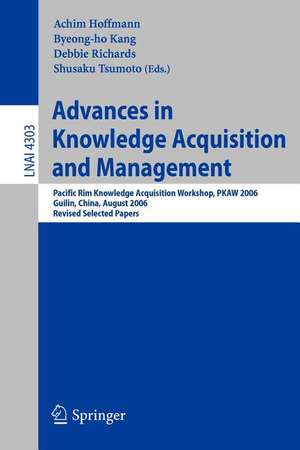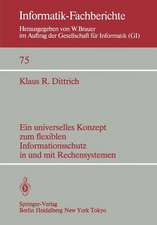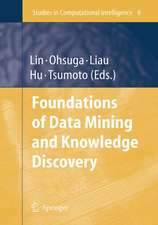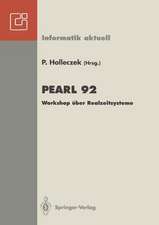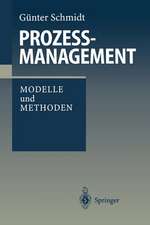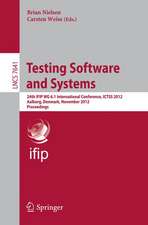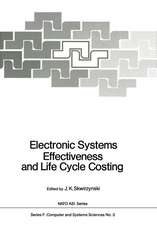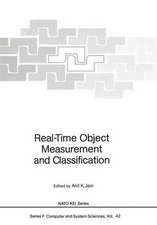Advances in Knowledge Acquisition and Management: Pacific Rim Knowledge Acquisition Workshop, PKAW 2006, Guilin, China, August 7-8, 2006, Revised Selected Papers: Lecture Notes in Computer Science, cartea 4303
Editat de Achim Hoffmann, Byeong-ho Kang, Debbie Richards, Shusaku Tsumotoen Limba Engleză Paperback – 14 dec 2006
Din seria Lecture Notes in Computer Science
- 20%
 Preț: 1061.55 lei
Preț: 1061.55 lei - 20%
 Preț: 307.71 lei
Preț: 307.71 lei - 20%
 Preț: 438.69 lei
Preț: 438.69 lei - 20%
 Preț: 579.30 lei
Preț: 579.30 lei -
 Preț: 410.88 lei
Preț: 410.88 lei - 17%
 Preț: 427.22 lei
Preț: 427.22 lei - 20%
 Preț: 596.46 lei
Preț: 596.46 lei - 15%
 Preț: 448.04 lei
Preț: 448.04 lei - 20%
 Preț: 353.50 lei
Preț: 353.50 lei -
 Preț: 389.49 lei
Preț: 389.49 lei - 20%
 Preț: 309.90 lei
Preț: 309.90 lei - 20%
 Preț: 645.28 lei
Preț: 645.28 lei - 20%
 Preț: 763.23 lei
Preț: 763.23 lei - 15%
 Preț: 580.46 lei
Preț: 580.46 lei - 20%
 Preț: 310.28 lei
Preț: 310.28 lei - 20%
 Preț: 655.02 lei
Preț: 655.02 lei - 20%
 Preț: 1183.14 lei
Preț: 1183.14 lei - 20%
 Preț: 340.32 lei
Preț: 340.32 lei -
 Preț: 449.57 lei
Preț: 449.57 lei - 20%
 Preț: 591.51 lei
Preț: 591.51 lei - 18%
 Preț: 938.83 lei
Preț: 938.83 lei - 20%
 Preț: 337.00 lei
Preț: 337.00 lei - 20%
 Preț: 649.50 lei
Preț: 649.50 lei - 20%
 Preț: 607.40 lei
Preț: 607.40 lei - 20%
 Preț: 1414.79 lei
Preț: 1414.79 lei - 20%
 Preț: 1024.44 lei
Preț: 1024.44 lei - 20%
 Preț: 583.40 lei
Preț: 583.40 lei - 20%
 Preț: 453.32 lei
Preț: 453.32 lei - 20%
 Preț: 575.49 lei
Preț: 575.49 lei - 20%
 Preț: 1075.26 lei
Preț: 1075.26 lei - 20%
 Preț: 585.88 lei
Preț: 585.88 lei - 20%
 Preț: 825.93 lei
Preț: 825.93 lei - 17%
 Preț: 360.20 lei
Preț: 360.20 lei - 20%
 Preț: 763.23 lei
Preț: 763.23 lei - 20%
 Preț: 340.32 lei
Preț: 340.32 lei - 20%
 Preț: 504.58 lei
Preț: 504.58 lei - 20%
 Preț: 369.13 lei
Preț: 369.13 lei - 20%
 Preț: 580.93 lei
Preț: 580.93 lei - 20%
 Preț: 343.62 lei
Preț: 343.62 lei - 20%
 Preț: 350.21 lei
Preț: 350.21 lei - 20%
 Preț: 583.40 lei
Preț: 583.40 lei - 20%
 Preț: 583.40 lei
Preț: 583.40 lei - 15%
 Preț: 438.59 lei
Preț: 438.59 lei - 20%
 Preț: 341.95 lei
Preț: 341.95 lei - 20%
 Preț: 238.01 lei
Preț: 238.01 lei - 20%
 Preț: 538.30 lei
Preț: 538.30 lei
Preț: 331.58 lei
Preț vechi: 414.48 lei
-20% Nou
Puncte Express: 497
Preț estimativ în valută:
63.47€ • 68.96$ • 53.35£
63.47€ • 68.96$ • 53.35£
Carte tipărită la comandă
Livrare economică 21 aprilie-05 mai
Preluare comenzi: 021 569.72.76
Specificații
ISBN-13: 9783540689553
ISBN-10: 3540689559
Pagini: 276
Ilustrații: XI, 264 p.
Dimensiuni: 155 x 235 x 14 mm
Greutate: 0.4 kg
Ediția:2006
Editura: Springer Berlin, Heidelberg
Colecția Springer
Seriile Lecture Notes in Computer Science, Lecture Notes in Artificial Intelligence
Locul publicării:Berlin, Heidelberg, Germany
ISBN-10: 3540689559
Pagini: 276
Ilustrații: XI, 264 p.
Dimensiuni: 155 x 235 x 14 mm
Greutate: 0.4 kg
Ediția:2006
Editura: Springer Berlin, Heidelberg
Colecția Springer
Seriile Lecture Notes in Computer Science, Lecture Notes in Artificial Intelligence
Locul publicării:Berlin, Heidelberg, Germany
Public țintă
ResearchCuprins
Regular Papers.- Visual Knowledge Annotation and Management by Using Qualitative Spatial Information.- Ad-Hoc and Personal Ontologies: A Prototyping Approach to Ontology Engineering.- Relating Business Process Models to Goal-Oriented Requirements Models in KAOS.- Heuristic and Rule-Based Knowledge Acquisition: Classification of Numeral Strings in Text.- RFID Tag Based Library Marketing for Improving Patron Services.- Extracting Discriminative Patterns from Graph Structured Data Using Constrained Search.- Evaluating Learning Algorithms with Meta-learning Schemes for a Rule Evaluation Support Method Based on Objective Indices.- Training Classifiers for Unbalanced Distribution and Cost-Sensitive Domains with ROC Analysis.- Revealing Themes and Trends in the Knowledge Domain’s Intellectual Structure.- Evaluation of the FastFIX Prototype 5Cs CARD System.- Intelligent Decision Support for Medication Review.- A Hybrid Browsing Mechanism Using Conceptual Scales.- Knowledge Representation for Video Assisted by Domain-Specific Ontology.- An Ontological Infrastructure for the Semantic Integration of Clinical Archetypes.- Improvement of Air Handling Unit Control Performance Using Reinforcement Learning.- Optimizing Dissimilarity-Based Classifiers Using a Newly Modified Hausdorff Distance.- A New Model for Classifying DNA Code Inspired by Neural Networks and FSA.- Improvements on Common Vector Approach Using k-Clustering Method.- The Method for the Unknown Word Classification.- Regular Papers (6–8 Pages).- An Ontology Supported Approach to Learn Term to Concept Mapping.- Building Corporate Knowledge Through Ontology Integration.- Planning with Domain Rules Based on State-Independent Activation Sets.- Elicitation of Non-functional Requirement Preference for Actors of Usecase fromDomain Model.- Enhancing Information Retrieval Using Problem Specific Knowledge.- Acquiring Innovation Knowledge.
